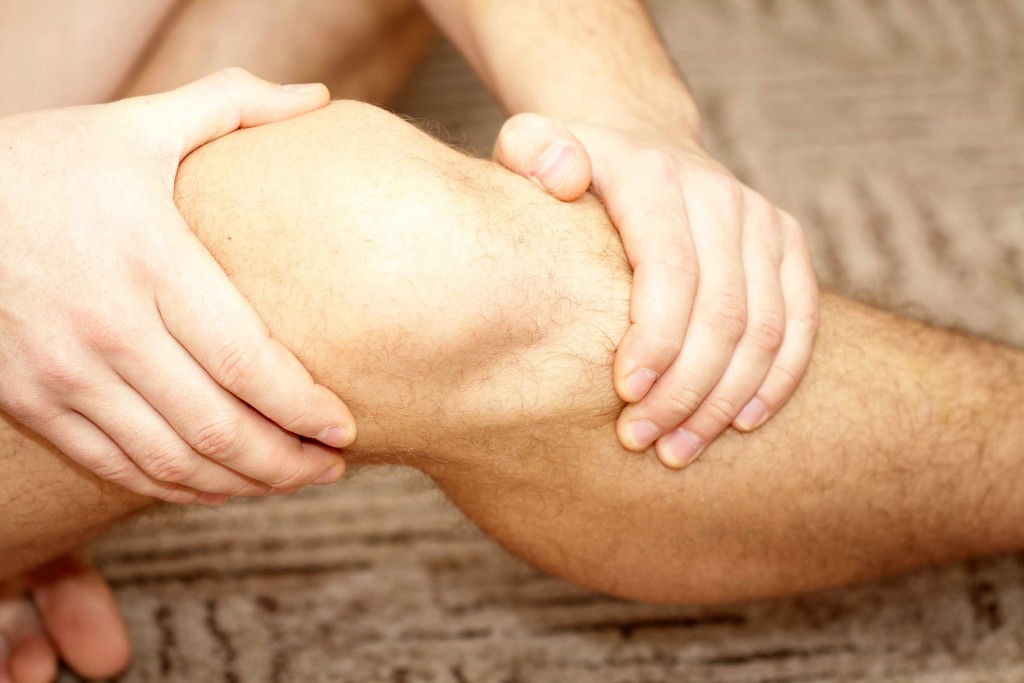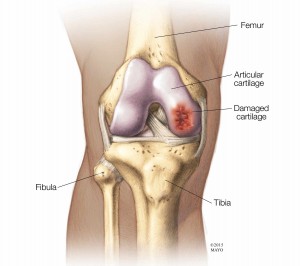-
Mayo Clinic Q and A: Cartilage repair, restoration becoming more common
DEAR MAYO CLINIC: I recently heard about cartilage being used in knee joints. Last summer I was diagnosed with osteopenia, degenerative arthritis, moderate lateral compartment narrowing, and knee joint effusion in my right knee. I can no longer straighten it and have some swelling. I’ve had two injections, which helped with the pain for a time, but am wondering if cartilage would help in my situation.
ANSWER: Procedures to restore and repair cartilage are becoming more common. In situations like yours, however, where there is significant cartilage loss, these procedures typically are not successful. But there are other effective options for treating the symptoms associated with arthritis in your knee and the conditions accompanying it.
Your knee has two kinds of cartilage. The first is articular cartilage. It provides a smooth, lubricated surface within the joint. The second is the meniscus. It provides a cushion to the articular cartilage during weight-bearing activities.
The issues you’re dealing with involve the articular cartilage. When problems arise in the articular cartilage, they are the result of a focal injury or defect, or they happen due to arthritis — a diffuse loss of cartilage.
Of these two problems, focal injuries and defects are much less common. They usually happen in younger people that have an athletic injury or that have other conditions, such as osteochondritis dissecans. Arthritis is much more common. Osteoarthritis typically happens as we age, wearing down the articular cartilage surfaces over time. There can also be cases of inflammatory arthritis, such as rheumatoid arthritis.
Both focal cartilage defects and arthritis can have similar symptoms, such as loss of motion, pain and swelling. It’s important to have a thorough evaluation to pinpoint the problem. That includes a detailed review of your medical history, a physical examination and imaging tests such X-rays and, when necessary, an MRI.
Cartilage repair or restoration procedures can be used to treat a focal articular cartilage defect or injury. They aren’t effective for arthritis. To understand why, it can be helpful to think in terms of road repair. If you have a focal defect or injury in the articular cartilage, it’s as if you have one or two potholes on a road. Those potholes can be repaired, and the road is sound. With arthritis, it’s as if there are many potholes in the road. Fixing each individual hole won’t restore the road overall, and more potholes form over time. A more comprehensive approach is needed to make the surface sound.
In your case, “degenerative arthritis with moderate lateral compartment narrowing” means that you have extensive loss of articular cartilage. Therefore, cartilage restoration or repair is not recommended. However, other treatments are available. Arthritis management often includes weight loss, activity modification, oral medications to reduce inflammation, and physical therapy to restore strength and motion.
Several injectable medications also can ease arthritis symptoms. Cortisone is the most common and is likely what you received in your injections. This medication works as an anti-inflammatory and can improve pain and swelling. Another common injection option is hyaluronic acid, or viscosupplementation.
More recent advances include injection of platelet-rich plasma or a bone marrow aspirate concentration that uses growth factors or your body’s own repair cells to alleviate symptoms. Studies have shown some promising results, but further research is still needed. Currently most insurance companies classify these treatments as experimental and may not cover the cost of them.
Another option under investigation is injection of mesenchymal stem cells using a person’s own fat cells in a two-stage procedure. A phase I clinical research trial of this treatment is currently under approval and will be enrolling patients soon.
In cases of severe arthritis with symptoms that have persisted despite comprehensive management, surgery such as knee arthroplasty or joint replacement may be reasonable.
Talk to your physician about additional treatment options for your situation. Although cartilage restoration probably won’t work, there are alternatives that are likely to improve your symptoms and help you feel better. ― Aaron Krych, M.D., Orthopedic Surgery, Mayo Clinic, Rochester, Minn.









